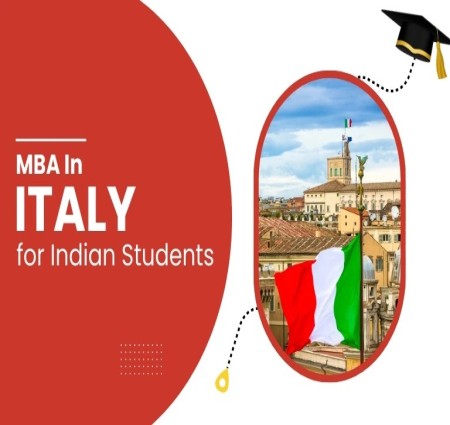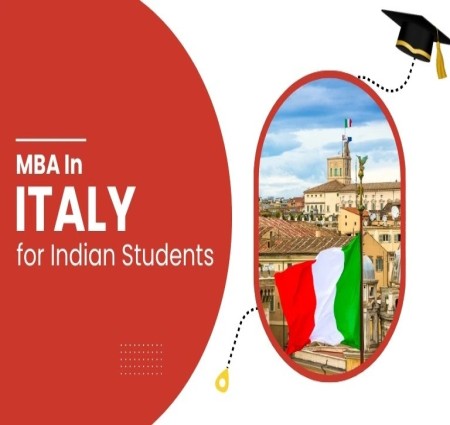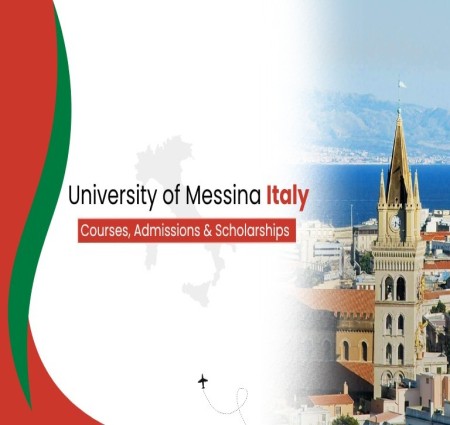Blog by yesitalyeducation | Digital Diary
" To Present local Business identity in front of global market"
" To Present local Business identity in front of global market"
 Digital Diary Submit Post
Digital Diary Submit Post
 Studying in Italy is becoming a popular choice for students in Pune who want quality education at affordable costs. Italian public universities offer globally recognised degrees, English-taught programs, and excellent scholarship options. With proper planning and guidance from trusted study abroad consultants in Pune like YES Italy, the entire process becomes simple and organised. Why Italy is a G...
Read More
Studying in Italy is becoming a popular choice for students in Pune who want quality education at affordable costs. Italian public universities offer globally recognised degrees, English-taught programs, and excellent scholarship options. With proper planning and guidance from trusted study abroad consultants in Pune like YES Italy, the entire process becomes simple and organised. Why Italy is a G...
Read More
Studying in Italy is becoming a popular choice for students in Pune who want quality education at affordable costs. Italian public universities offer globally recognised degrees, English-taught programs, and excellent scholarship options.
With proper planning and guidance from trusted study abroad consultants in Pune like YES Italy, the entire process becomes simple and organised.
Italy provides high academic standards along with financial support, making it ideal for Indian students who want international education without heavy expenses.
Students benefit from affordable fees, strong university reputation, and opportunities to grow academically and professionally.
Choosing the right course and university is the foundation of your study abroad journey. It decides your future career direction and eligibility for scholarships.
Popular Italian public universities include:
• University of Bologna
• Politecnico di Milan
• University of Padua
• Sapienza University of Rome
• University of Milan
Many students take help from experienced study abroad consultants in Pune like YES Italy to select universities that match their profile.
Each course has specific academic and language requirements that students must meet before applying.
Students must complete 12th standard with required subjects and show English proficiency.
Students need a Bachelor's degree with minimum percentage, relevant background, and supporting documents like SOP and CV.
Documents are essential to support your application and visa process. Submitting accurate papers increases your chances of quick acceptance.
Typical documents include academic transcripts, passport, SOP, CV, English language proof, and portfolio (if required).
Applications are done online directly to universities during their intake periods.
Students usually apply to multiple universities to improve selection chances. Once approved, you receive an official admission offer letter.
Scholarships play a major role in making education in Italy affordable for students from Pune.
Government and regional scholarships can cover tuition fees, accommodation, and monthly living expenses - reducing overall study cost significantly.
This is an official Italian government process required for international students.
You upload your documents and confirm your course and university. After approval, you can proceed with the visa application.
The visa allows you to legally study and stay in Italy.
You submit admission proof, financial documents, accommodation details, and required forms. With help from study abroad consultants in Pune like YES Italy, this process becomes easier and error-free.
Once your visa is approved, you prepare for departure.
After arriving in Italy, you complete residence permit formalities and university registration to officially start your academic journey.
YES Italy specialises only in Italian education and understands the full admission and visa system deeply.
They support students with university selection, applications, scholarships, visa processing, and pre-departure guidance - making the journey smooth from Pune to Italy.
Studying in Italy from Pune is a smart and achievable goal with the right guidance and preparation.
Affordable education, scholarships, and world-class universities make Italy an excellent choice - and with expert support from study abroad consultants for Italy in Pune like YES Italy, students can confidently move forward.
Read Full Blog...
 Italy has become a top destination for Indian students who want to pursue an MBA abroad with affordable fees, globally recognised degrees, and strong career opportunities. From top business schools to international exposure, an MBA in Italy offers excellent value. This guide explains how to apply for an MBA course in Italy from India in simple steps. Why Choose Italy for MBA? Italy is an ideal cho...
Read More
Italy has become a top destination for Indian students who want to pursue an MBA abroad with affordable fees, globally recognised degrees, and strong career opportunities. From top business schools to international exposure, an MBA in Italy offers excellent value. This guide explains how to apply for an MBA course in Italy from India in simple steps. Why Choose Italy for MBA? Italy is an ideal cho...
Read More
Italy has become a top destination for Indian students who want to pursue an MBA abroad with affordable fees, globally recognised degrees, and strong career opportunities. From top business schools to international exposure, an MBA in Italy offers excellent value.
This guide explains how to apply for an MBA course in Italy from India in simple steps.
Italy is an ideal choice for MBA students because:
World-class business schools
Affordable tuition compared to UK/USA
Strong industry connections
Programs taught in English
Scholarships available for international students
Post-study work opportunities in Europe
Some popular MBA institutions in Italy include:
SDA Bocconi School of Management
LUISS Business School
MIP Politecnico di Milano
University of Bologna Business School
ESCP Business School (Italy campus)
These universities are globally ranked and industry-focused.
To apply for an MBA in Italy, Indian students generally need:
A recognized bachelor's degree from any discipline.
Most MBA programs require 1–3 years of professional experience.
IELTS/TOEFL if your previous education was not in English.
Some universities may ask for GMAT/GRE (optional for many schools).
Choose universities based on:
Specialization
Budget
Location
Career goals
You will need:
Academic transcripts
Resume/CV
SOP (Statement of Purpose)
LOR (Letters of Recommendation)
English test scores
Passport
Applications are submitted online through:
University portals
Or via authorised consultants
Many MBA schools conduct online interviews.
Once selected, you will receive a conditional or final offer.
After admission, apply for the Italy student visa with:
Offer letter
Financial proof
Accommodation proof
SOP
Medical insurance
Passport and documents
Visa approval depends heavily on correct documentation.
Public universities: €5,000 – €12,000 per year
Private business schools: €15,000 – €35,000 per year
Approx. €700 – €1,000 per month.
Indian students can apply for:
Italian Government Scholarships
University-based scholarships
Regional grants
Merit-based fee waivers
This makes MBA in Italy more affordable.
Yes, students can work:
Up to 20 hours per week
Full-time during holidays
This helps manage living costs.
Choosing wrong university
Weak SOP
Missing deadlines
Incomplete documents
Applying without proper guidance
These mistakes can reduce chances of admission and visa success.
Among many overseas education consultancies, YES Italy stands out as one of the most trusted and specialised consultants for MBA in Italy for Indian Students.
100% Italy-focused consultancy
Expert counsellors for Italian business schools
Strong partnerships with top MBA universities
High admission and visa success rate
Personalized profile evaluation
YES Italy supports students with:
MBA university shortlisting
Application and documentation
SOP and interview preparation
Scholarship guidance
Visa filing support
Pre-departure assistance
They handle everything from start to finish.
Applying for an MBA course in Italy from India is a smart decision if you want international exposure at a reasonable cost. The process is simple when you have the right guidance.
With its Italy-only expertise, strong university network, and proven success, YES Italy is one of the best consultancies in India for MBA in Italy, helping students turn their global career dreams into reality ???
Read Full Blog... Planning to study in Italy? Italy is a top destination for international students, offering quality education, rich culture, and some of the top universities in Italy. However, before you can enjoy student life in Italy, you need a student visa for Italy. This guide will explain the entire process in simple steps, so you can plan your journey smoothly. Why You Need a Student Visa for Italy A stude...
Read More
Planning to study in Italy? Italy is a top destination for international students, offering quality education, rich culture, and some of the top universities in Italy. However, before you can enjoy student life in Italy, you need a student visa for Italy. This guide will explain the entire process in simple steps, so you can plan your journey smoothly. Why You Need a Student Visa for Italy A stude...
Read More
Planning to study in Italy? Italy is a top destination for international students, offering quality education, rich culture, and some of the top universities in Italy. However, before you can enjoy student life in Italy, you need a student visa for Italy. This guide will explain the entire process in simple steps, so you can plan your journey smoothly.
A student visa for Italy is mandatory for anyone planning to study in Italy for more than 90 days. This visa ensures that you can legally stay, study, and access services during your course. Without it, you cannot enroll in universities or participate in academic programs.
There are mainly two types of student visas in Italy:
Short-term Study Visa – For courses up to 90 days.
Long-term Study Visa – For degree programs or courses longer than 90 days.
Most international students opt for the long-term student visa when they plan to study in undergraduate, postgraduate, or specialized programs.
Before applying for a visa, you must select your course and apply to a university. Italy has several renowned institutions, including the top universities in Italy like:
University of Bologna
Sapienza University of Rome
Politecnico di Milano
Bocconi University
Ensure you receive an acceptance letter from the university, as this is mandatory for your visa application.
Each Italian embassy or consulate may have slightly different requirements, but generally, you need:
Completed visa application form
Valid passport (at least six months beyond intended stay)
Acceptance letter from the university
Proof of financial means to support your stay
Proof of accommodation in Italy
Health insurance coverage
Passport-sized photographs
Documents are crucial for your student visa for Italy. Make sure everything is complete and valid. Missing or incorrect documents can lead to visa rejection.
Key documents include:
Passport
University acceptance letter
Financial proof (bank statement, scholarship, or sponsorship letter)
Accommodation details
Travel and medical insurance
Passport-size photographs
Visa application fee receipt
Once your documents are ready, submit your application to the Italian embassy or consulate in your country. Some countries require online appointment booking before submission. Submit your application in person and make sure you follow all instructions carefully.
Many applicants are required to attend a short interview. During the interview, officials may ask about:
Your chosen course and university
Reasons for choosing Italy
How you plan to finance your studies
Your post-study plans
Answer honestly and confidently.
After the interview, your student visa for Italy will be processed. Processing time varies but usually takes 15–60 days. It's important to apply well in advance to avoid delays.
Once approved, collect your visa from the embassy or consulate. Check the visa carefully for any errors in your name, passport number, or validity dates.
Apply as early as possible to avoid last-minute stress.
Double-check all documents and forms.
Ensure financial proof meets the required amount.
Keep copies of all submitted documents.
Follow all instructions provided by the embassy carefully.
After obtaining your student visa for Italy, it's time to prepare for your move.
Key preparations include:
Booking flight tickets
Arranging accommodation near your university
Understanding local transport and culture
Familiarizing yourself with the academic calendar
Preparing a basic Italian language guide
Italy offers an amazing experience for students. From its historic cities to modern campuses, you'll enjoy learning and exploring. Many top universities in Italy provide excellent academic facilities, libraries, and student support services.
Important things to remember:
Maintain your student status by attending classes and meeting university requirements.
Respect visa regulations to avoid legal issues.
Explore scholarship and part-time work opportunities to support your studies.
Studying in Italy has multiple advantages:
Access to top universities in Italy with global recognition.
Opportunities to learn Italian culture and language.
Affordable tuition compared to other European countries.
Rich student life with clubs, cultural events, and networking opportunities.
Getting a student visa for Italy is the first step toward an exciting academic journey. By following this guide, gathering the right documents, and carefully applying, you can make your dream of studying in Italy a reality. Remember to choose the right course, prepare your documents properly, and follow all instructions.
Studying in Italy not only gives you a quality education but also a chance to experience one of the most beautiful countries in the world. Start your journey today and unlock the opportunities that await in the top universities in Italy.
Read Full Blog... Studying in Italy is becoming a dream for many international students, thanks to affordable education, cultural richness, and strong academic reputation. Among the many funding options available, the DSU Scholarship in Italy is one of the most popular government-funded programs that helps students pursue their studies without financial stress. This article explains who can apply for the DSU Schola...
Read More
Studying in Italy is becoming a dream for many international students, thanks to affordable education, cultural richness, and strong academic reputation. Among the many funding options available, the DSU Scholarship in Italy is one of the most popular government-funded programs that helps students pursue their studies without financial stress. This article explains who can apply for the DSU Schola...
Read More
Studying in Italy is becoming a dream for many international students, thanks to affordable education, cultural richness, and strong academic reputation. Among the many funding options available, the DSU Scholarship in Italy is one of the most popular government-funded programs that helps students pursue their studies without financial stress.
This article explains who can apply for the DSU Scholarship in Italy, its eligibility criteria, benefits, required documents, and application process in simple and useful steps.
The DSU Scholarship in Italy (Diritto allo Studio Universitario) is a financial aid program offered by the Italian government to support students based on their family income and academic performance.
It is available for both Italian and international students studying in universities across various Italian regions. Each region manages its own DSU scheme, such as Toscana, Lombardia, Lazio, and Piemonte, but the core goal remains the same - making education accessible to everyone.
The DSU Scholarship provides financial assistance that helps students manage their living costs while studying in Italy. Some major benefits include:
Tuition Fee Waiver: Many universities exempt DSU scholars from paying tuition fees.
Accommodation Support: Free or subsidized university housing for selected students.
Meal Coupons: Access to university canteens at no or very low cost.
Annual Stipend: Financial aid of around €1,500 – €5,000 per academic year (varies by region).
Additional Benefits: Travel reimbursements, study materials, or internship support.
These benefits make the Study in Italy journey easier and more affordable for students from all backgrounds.
The DSU Scholarship is open to a wide range of students, both local and international. To qualify, applicants must meet specific academic, financial, and residential conditions.
Students from outside the European Union are eligible for the DSU Scholarship in Italy if they enroll in an accredited Italian university. Applicants must provide valid income and asset documents, translated and legalized according to Italian standards.
European Union students studying in Italy can also apply. They need to demonstrate low income through family financial certificates from their home country.
Italian citizens enrolled in bachelor's, master's, or doctoral programs within Italian universities can also apply, based on regional income limits.
Applicants must satisfy the following academic conditions to qualify for the DSU Scholarship:
Must be enrolled in a recognized university in Italy (either undergraduate, postgraduate, or PhD level).
Maintain satisfactory academic performance as defined by the university.
For renewal, students must complete a set number of credits each year.
First-year students are provisionally eligible but must meet academic requirements to renew the scholarship.
The DSU Scholarship is primarily income-based. Applicants must fall below a certain income threshold to qualify.
The exact income limit (usually between €23,000 – €25,000 per year) depends on the region.
Non-EU students must submit ISEE equivalent documents, certified and translated into Italian.
The scholarship is intended for students from economically weaker backgrounds who need financial assistance to continue their studies.
When applying for the DSU Scholarship in Italy, students must prepare and upload several documents, including:
Valid passport or residence permit.
Admission or enrollment proof from an Italian university.
Family income certificate (translated and legalized).
Family composition certificate.
Educational transcripts.
Statement of purpose or declaration form (if required by the region).
Bank account details for fund transfer.
Providing accurate and verified documents is crucial for successful scholarship approval.
The application process for the DSU Scholarship is done online through the regional DSU websites. Below is a simple step-by-step guide:
Check Eligibility: Ensure your income, academic, and admission status meet DSU requirements.
Register on the Portal: Visit your university's regional DSU website and create an account.
Fill the Application Form: Complete the online form with accurate personal and academic details.
Upload Documents: Attach all required financial and academic documents.
Submit the Form: Apply before the official deadline (usually between July and September).
Wait for Results: Shortlisted candidates will be notified via email or the portal.
If you are planning to pursue an MBA in Italy, the DSU Scholarship can be a huge advantage. Many Italian universities, such as Politecnico di Milano, University of Bologna, and LUISS Business School, accept DSU-funded students.
The scholarship can cover part or full tuition, living expenses, and meals during your MBA course. This makes studying management or business in Italy highly cost-effective and globally recognized.
Must have an offer or enrollment in an accredited MBA program.
Should meet the regional DSU income criteria.
Non-EU students must provide legalized family income proof.
Application deadlines usually open between July and August each year.
By combining an MBA in Italy with the DSU Scholarship, students can enjoy world-class education and European exposure without heavy financial pressure.
Here are a few tips to improve your chances of getting selected:
Start preparing documents early, especially income certificates.
Translate and legalize documents according to Italian embassy rules.
Apply before the deadline to avoid last-minute issues.
Double-check details on your DSU regional portal (Lazio, Toscana, Lombardia, etc.).
Keep copies of all submitted documents.
Following these steps carefully increases your chance of receiving the scholarship.
The DSU Scholarship in Italy is one of the best funding options for students seeking affordable, quality education in Europe. It not only supports your finances but also helps you experience Italian culture, global exposure, and academic excellence.
Whether you plan to Study in Italy for undergraduate, postgraduate, or MBA in Italy, the DSU Scholarship can make your education journey smoother, accessible, and debt-free.
If you dream of studying in one of the world's most historic and artistic countries, Italy is a perfect destination. The DSU Scholarship makes it possible for talented students from all backgrounds to achieve their academic goals without worrying about costs.
Start your scholarship journey today and explore endless study opportunities with guidance from trusted experts like YES Italy - your reliable partner for admissions, scholarships, and visa support.
Read Full Blog... Choosing where to study business is one of the most important career decisions you will make. Italy has become a top choice for international students because it offers world-class education, affordable tuition, and opportunities for global exposure. For many students, the biggest concern is cost. That's why looking at the top B schools in Italy with low fees is the smart way to balance quality an...
Read More
Choosing where to study business is one of the most important career decisions you will make. Italy has become a top choice for international students because it offers world-class education, affordable tuition, and opportunities for global exposure. For many students, the biggest concern is cost. That's why looking at the top B schools in Italy with low fees is the smart way to balance quality an...
Read More
Choosing where to study business is one of the most important career decisions you will make. Italy has become a top choice for international students because it offers world-class education, affordable tuition, and opportunities for global exposure. For many students, the biggest concern is cost. That's why looking at the top B schools in Italy with low fees is the smart way to balance quality and affordability.
This blog will guide you through the reasons to Study in Italy, the best business schools with lower tuition fees, benefits of choosing affordable schools, and tips to maximize your opportunities.
Italy is not only famous for art, fashion, and culture but also for its growing reputation in education. Every year, thousands of students choose Italian universities and business schools for MBA and management programs. Here's why:
Affordable Education – Tuition is lower compared to countries like the USA, UK, or Australia.
Quality Programs – Italian schools are ranked among the best in Europe.
Scholarship Options – Many schools offer scholarships for international students.
Cultural Experience – Living in Italy means experiencing history, art, food, and lifestyle while you study.
English-Taught Courses – Most B-schools offer programs in English, so language is not a barrier.
If you're looking at an MBA or even a Bachelors in Italy, choosing this country gives you both career growth and life experience.
Here is a list of some reputed business schools in Italy where tuition is more affordable compared to other international destinations.
Ranked among Europe's best business schools.
Known for its MBA and Executive MBA programs.
Offers need-based and merit-based scholarships.
Tuition is higher than some universities but scholarships bring down the overall cost.
Strong focus on innovation, leadership, and global business.
Programs in English attract many international students.
Offers financial support and partial tuition waivers.
Located in Rome, with access to multinational companies.
Known for its mix of design, technology, and business.
Great for students interested in innovation-driven careers.
Affordable tuition compared to other European MBAs.
Partnerships with global companies for internships.
Part of one of the oldest universities in the world.
Offers diverse MBA specializations.
Known for quality education at lower costs.
Provides scholarships for both EU and non-EU students.
Public university with lower tuition fees.
Offers management and economics programs.
Affordable for international students compared to private B-schools.
Strong academic tradition and research opportunities.
These institutions represent some of the top B schools in Italy, giving you the chance to get a world-class education without the heavy financial burden.
Many students think higher tuition means better quality, but in Italy, you can find top-ranked universities at reasonable costs. Here are the benefits:
Save on Tuition Fees – Focus more on your studies and less on financial stress.
International Recognition – Degrees are recognized worldwide.
Scholarship Opportunities – Reduce costs further with merit-based or government scholarships.
Practical Learning – Affordable schools also provide internships and industry exposure.
Global Careers – Graduates from Italian schools work in multinational companies across the globe.
When planning to Study in Italy, you need to calculate both tuition fees and living expenses.
Tuition Fees: Public universities charge around €2,000 – €4,000 per year. Private business schools are higher but often provide scholarships.
Living Costs: Around €700 – €1,000 per month depending on the city. Milan and Rome are more expensive, while smaller cities are cheaper.
Scholarships: Italian government scholarships and university grants are available for international students.
This makes Italy one of the most affordable options for students who want a recognized international degree.
If you are planning for undergraduate studies, choosing a Bachelors in Italy is also a smart option. Many universities offer Bachelor's programs in management, economics, and business administration. These programs are affordable, internationally recognized, and often taught in English.
Benefits include:
Affordable tuition fees compared to other European countries.
Exposure to international classmates and professors.
Opportunity to continue into MBA or Master's programs in Italy.
Access to scholarships even at the Bachelor's level.
Starting your business journey with a Bachelors in Italy gives you a strong foundation at low cost.
If you want to make your study journey in Italy more affordable, here are some practical tips:
Apply for Scholarships Early – Deadlines are strict, so prepare in advance.
Choose Public Universities – They are much cheaper than private institutions.
Work Part-Time – International students can legally work part-time to support living expenses.
Share Accommodation – Renting a shared apartment reduces costs.
Budget Smartly – Track your expenses and avoid unnecessary spending.
Studying at one of the top B schools in Italy is not just about academics. Italy's strong connections with European industries provide students with excellent job opportunities.
Internships during studies help you gain practical experience.
Global companies like Ferrari, Gucci, Eni, and Fiat recruit management graduates.
Many B schools in Italy have career placement services.
You can explore jobs across Europe after graduation.
This makes Italy not only an affordable place to study but also a gateway to global career growth.
Choosing one of the top B schools in Italy with low fees is a smart way to balance quality and affordability. Whether you are pursuing an MBA or planning for a Bachelors in Italy, the country offers excellent opportunities, global exposure, and scholarships that make education accessible.
If you are planning to Study in Italy, start your research early, compare schools, and apply for financial aid. Italy is not just about history and culture-it is also a land of opportunities for future business leaders.
Read Full Blog... Italy is becoming one of the top destinations for higher education, especially for Indian students who want to pursue an MBA in Italy. With world-class universities, affordable tuition fees, and a rich cultural experience, Italy offers a unique opportunity to combine education with international exposure. In this guide, we will walk you through everything you need to know to pursue an MBA in Italy...
Read More
Italy is becoming one of the top destinations for higher education, especially for Indian students who want to pursue an MBA in Italy. With world-class universities, affordable tuition fees, and a rich cultural experience, Italy offers a unique opportunity to combine education with international exposure. In this guide, we will walk you through everything you need to know to pursue an MBA in Italy...
Read More
Italy is becoming one of the top destinations for higher education, especially for Indian students who want to pursue an MBA in Italy. With world-class universities, affordable tuition fees, and a rich cultural experience, Italy offers a unique opportunity to combine education with international exposure. In this guide, we will walk you through everything you need to know to pursue an MBA in Italy successfully.
Studying in Italy provides multiple benefits:
Global Recognition: Italian universities are recognized worldwide for their high-quality education and innovative teaching methods.
Affordable Education: Compared to other European countries, tuition fees for an MBA in Italy are reasonable, making it a cost-effective choice.
Cultural Experience: Italy is known for its history, art, fashion, and cuisine. Students get a chance to experience European culture firsthand.
International Networking: Studying in Italy allows you to connect with students from across the globe, expanding your professional network.
To pursue an MBA in Italy, Indian students need to meet specific requirements:
Bachelor's Degree: A recognized undergraduate degree in any discipline.
Work Experience: Most MBA programs prefer 1–3 years of professional experience.
English Proficiency: IELTS or TOEFL scores are required for programs taught in English.
Entrance Exams: Some universities may require GMAT or GRE scores.
Motivation Letter & CV: A well-prepared motivation letter and updated CV enhance your application.
Here are some of the best universities for an MBA in Italy:
Bocconi University, Milan: Known for management and business programs.
SDA Bocconi School of Management: Offers international MBA programs with global exposure.
MIP Politecnico di Milano: Focuses on innovation and leadership.
LUISS Business School, Rome: Provides a strong international network and career opportunities.
ESCP Europe, Turin Campus: Combines academic rigor with practical business training.
Italian universities offer several types of MBA programs:
Full-Time MBA: Intensive 1–2 year programs focusing on global business management.
Executive MBA (EMBA): Designed for professionals with significant work experience.
Part-Time MBA: Flexible programs that allow students to study while working.
Specialized MBA: Programs focusing on areas like Finance, Marketing, Luxury Management, and Entrepreneurship.
The admission process for an MBA in Italy is straightforward if you follow these steps:
Research Universities: Choose the right university and program that aligns with your career goals.
Check Eligibility: Make sure you meet academic and language requirements.
Prepare Documents: Collect your transcripts, CV, motivation letter, passport copy, and recommendation letters.
Submit Application: Apply directly to the university or through official portals.
Attend Interview: Some universities conduct personal or online interviews to assess your profile.
Receive Admission Letter: After acceptance, you will receive an official admission letter.
To study in Italy, Indian students need a Student Visa. The process includes:
Acceptance Letter: Obtain an official admission letter from your university.
Visa Application: Apply online or at the Italian Consulate in India.
Financial Proof: Show sufficient funds to cover tuition and living expenses.
Health Insurance: Purchase valid health insurance for the duration of your stay.
Visa Interview: Attend an interview at the Italian Consulate if required.
With the right preparation, most students get their study visa for Italy without major issues.
The cost of an MBA in Italy depends on the university and program type:
Tuition Fees: Range between €10,000 to €40,000 per year.
Living Expenses: Around €800–€1,200 per month (accommodation, food, transport).
Scholarships: Many universities offer scholarships, including merit-based and need-based options.
Planning your finances is crucial to ensure a smooth academic journey.
Indian students can access multiple scholarships for an MBA in Italy:
University Scholarships: Offered directly by Italian universities based on merit.
Government Scholarships: Programs like the MAECI Scholarship for international students.
External Scholarships: Offered by organizations and foundations supporting study abroad initiatives.
Applying early improves your chances of receiving financial aid.
An MBA in Italy opens doors to global career opportunities:
Corporate Jobs: Marketing, finance, consulting, and management roles.
Entrepreneurship: Italy supports startups and innovation hubs for new businesses.
International Exposure: Graduates often get job offers from multinational companies across Europe.
Italy also provides a post-study work visa, allowing students to gain valuable international experience.
Learn Basic Italian: Knowing the local language helps in daily life and internships.
Plan Accommodation Early: University hostels or shared apartments are common options.
Network Actively: Join student groups and professional associations.
Budget Wisely: Track monthly expenses and plan for emergencies.
Cultural Adaptation: Embrace Italian traditions and social etiquette for a smooth stay.
Studying an MBA in Italy is an exciting opportunity for Indian students. With world-class universities, affordable tuition, scholarships, and a vibrant cultural experience, it is an excellent destination for masters in Italy. By following this guide, preparing your documents, and applying through the right channels, you can start your dream journey to study in Italy and build a global career.
Read Full Blog... Scholarship in Italy makes studying abroad an exciting opportunity, even if education costs are a concern. Fortunately, there are many financial support options available for students. If you are planning to pursue higher education, this guide will help you explore the top scholarship opportunities in Italy for both Masters and Bachelors programs. Why Choose Italy for Higher Education? Italy is no...
Read More
Scholarship in Italy makes studying abroad an exciting opportunity, even if education costs are a concern. Fortunately, there are many financial support options available for students. If you are planning to pursue higher education, this guide will help you explore the top scholarship opportunities in Italy for both Masters and Bachelors programs. Why Choose Italy for Higher Education? Italy is no...
Read More
Scholarship in Italy makes studying abroad an exciting opportunity, even if education costs are a concern. Fortunately, there are many financial support options available for students. If you are planning to pursue higher education, this guide will help you explore the top scholarship opportunities in Italy for both Masters and Bachelors programs.
Italy is not only famous for its rich history, art, and culture but also for offering high-quality education in a variety of fields. From engineering to fashion, business to medicine, Italian universities attract students from all over the world. Choosing to study in Italy gives you:
Affordable tuition compared to other European countries
Internationally recognized degrees
Access to vibrant student life and cultural experiences
Opportunities to learn or improve Italian language skills
There are multiple scholarship options for students aiming to study in Italy. These can be broadly categorized as:
The Italian government offers scholarships for international students through the Ministry of Foreign Affairs and International Cooperation (MAECI). These scholarships typically cover:
Tuition fees
Living allowance
Health insurance
Travel expenses
Eligibility: Usually for students enrolled in Bachelors, Masters, or PhD programs.
Many Italian universities offer their own scholarships for both domestic and international students. Examples include:
Bocconi University Scholarships – For MBA and other postgraduate programs
University of Bologna Study Grants – For undergraduate and graduate programs
Politecnico di Milano Merit Scholarships – For students in engineering, design, and technology
These scholarships often consider academic merit, financial need, or both.
Several private organizations and international bodies provide scholarships for students looking to study in Italy:
Erasmus+ Program – Funded by the European Union for exchange students
Italian Chambers of Commerce Scholarships – For business and MBA programs
UNESCO Fellowships – For research and academic excellence
These scholarships may vary in coverage, from full tuition to partial support.
For those pursuing undergraduate studies, several scholarship programs are available:
Invest Your Talent in Italy – For Indian students in engineering, economics, and architecture
Study in Italy Scholarships by Italian Universities – Merit-based grants for academic excellence
EXPO Scholarships – Specific universities offer support for students enrolling in selected programs
Reduced tuition fees
Monthly stipends for living costs
Networking opportunities with international students
Access to workshops and training programs
Masters students, including those interested in an MBA in Italy, have numerous opportunities:
Bocconi MBA Scholarships – Merit-based and need-based options for international students
Politecnico di Milano Graduate Scholarships – For engineering, design, and technology Masters programs
LUISS Scholarships – For business, law, and social sciences
Italian Government MAECI Scholarships – For students enrolling in Masters programs across Italy
Partial or full tuition coverage
Monthly allowances for accommodation and living
Health insurance support
International networking and career guidance
Applying for scholarships requires careful preparation. Follow these steps to improve your chances:
Research Scholarships Early – Check university websites and government portals regularly.
Check Eligibility Criteria – Each scholarship has different academic and financial requirements.
Prepare Documents – Common documents include:
Academic transcripts
Motivation letters
Letters of recommendation
Proof of English or Italian proficiency
Submit Applications Before Deadlines – Late applications are usually not accepted.
Follow Up – Keep track of your application status and respond promptly to any requests.
Learn basic Italian to improve your daily life and academic experience.
Participate in workshops and seminars organized by universities.
Connect with student groups and networks for guidance and support.
Explore part-time work opportunities if allowed under your student visa.
Pursuing an MBA in Italy can be a life-changing opportunity:
Global recognition of Italian business schools
Focus on international business, finance, and management
Access to internships and career opportunities in Europe
Scholarships available for meritorious and talented students
Top universities like Bocconi, LUISS, and MIP Politecnico offer MBA in Italy programs with scholarships for international students.
Italy is a top choice for students who want quality education without the financial stress. With a variety of scholarships in Italy, both Bachelors and Masters students can achieve their dreams of studying abroad. Whether you are interested in an MBA in Italy or other degree programs, proper research and timely applications can help you secure funding.
Take advantage of these opportunities, explore programs, and start your journey to study in Italy with financial support. YES Italy provides guidance and assistance to help international students navigate scholarships, applications, and student life.
Read Full Blog... Studying abroad is a dream for many students, and Italy offers a range of opportunities to make this dream a reality. Among these, the DSU scholarship in Italy stands out as a helpful option for students looking for financial support. This article explains the eligibility criteria, who can apply, and tips to make the application process smoother. If you are considering higher education, including...
Read More
Studying abroad is a dream for many students, and Italy offers a range of opportunities to make this dream a reality. Among these, the DSU scholarship in Italy stands out as a helpful option for students looking for financial support. This article explains the eligibility criteria, who can apply, and tips to make the application process smoother. If you are considering higher education, including...
Read More
Studying abroad is a dream for many students, and Italy offers a range of opportunities to make this dream a reality. Among these, the DSU scholarship in Italy stands out as a helpful option for students looking for financial support. This article explains the eligibility criteria, who can apply, and tips to make the application process smoother. If you are considering higher education, including an MBA in Italy, understanding these requirements is crucial.
The DSU scholarship in Italy is a financial aid program designed to help international and local students pursue higher education without worrying about tuition fees and living expenses. DSU scholarships are offered by regional authorities and sometimes by universities themselves. They aim to make studying abroad affordable, giving students the opportunity to focus on learning and career growth.
Tuition fee coverage at participating universities
Accommodation and meal support in some cases
Financial aid for books, study materials, and other necessities
Opportunities for students pursuing undergraduate, postgraduate, or professional courses, including MBA in Italy
To apply for the DSU scholarship in Italy, students must meet certain requirements. Meeting these ensures your application will be considered for approval.
Academic Qualification
Students should have completed the previous level of education required for the course they are applying for.
For an undergraduate program, high school completion is required.
For postgraduate programs, including MBA in Italy, a bachelor's degree is necessary.
Minimum Grade Requirements
Most scholarships require a minimum grade point average or equivalent academic performance.
Maintaining a strong academic record increases your chances of approval.
Residency or Nationality Requirements
DSU scholarships are available for both Italian residents and international students.
International students may need to provide proof of nationality and residence status.
Course Enrollment
Applicants must be enrolled or have received admission in a recognized Italian university.
This includes programs in fields like management, engineering, arts, and professional courses such as MBA in Italy.
Income Criteria
Many DSU scholarships are merit-cum-means based, meaning they consider both academic performance and financial need.
Applicants may need to submit family income documents, tax records, or financial statements.
Language Proficiency
Depending on the program, proficiency in English or Italian may be required.
Universities usually accept IELTS, TOEFL, or equivalent certificates for international students.
The DSU scholarship in Italy is not limited to local students. International learners are also encouraged to apply. Here's what you need to know:
Proof of enrollment in an Italian university is mandatory.
A valid passport and visa documentation are required.
Academic and financial documents must be translated into Italian if needed.
International students aiming for an MBA in Italy can benefit from these scholarships to reduce tuition costs significantly.
DSU scholarships can vary depending on the university and region. Common types include:
Full Tuition Scholarship
Covers complete tuition fees.
Some may also include living expenses.
Partial Scholarship
Covers a portion of tuition fees or living costs.
Often awarded based on merit and financial need.
Merit-Based Scholarship
Awarded solely on academic performance.
High-achieving students are prioritized.
Need-Based Scholarship
Awarded based on financial eligibility.
Students from low-income families are given preference.
To apply for the DSU scholarship in Italy, students typically need the following documents:
Admission letter from an Italian university (including MBA in Italy)
Academic transcripts and certificates
Passport copy (for international students)
Income certificate or financial proof
Language proficiency certificate (if applicable)
Completed scholarship application form
Submitting accurate and complete documents is critical for approval. Incomplete applications are often rejected.
Here's a simple step-by-step guide:
Check Eligibility
Review academic, financial, and nationality requirements.
Select Your Program
Choose your desired course, including MBA in Italy, and ensure it's eligible for DSU funding.
Prepare Documents
Collect transcripts, certificates, passport, financial proofs, and language scores.
Complete the Application Form
Fill out the official DSU scholarship form carefully.
Submit Before Deadline
Ensure all documents are attached and submit before the deadline.
Follow Up
Keep track of application status and respond promptly if additional information is requested.
Start your application early to avoid last-minute issues.
Double-check all documents for accuracy.
Maintain good academic records, as merit plays an important role.
Seek guidance from YES Italy to understand regional and university-specific DSU scholarship rules.
Apply for multiple scholarships to maximize your chances of financial support.
The DSU scholarship in Italy is more than financial support; it opens doors to world-class education. Students can:
Focus fully on studies without worrying about expenses.
Experience Italian culture while learning from top professors.
Build an international network with peers and faculty.
Pursue high-demand courses like MBA in Italy and increase career opportunities globally.
Understanding the eligibility criteria for DSU scholarship in Italy is the first step to securing financial aid for your studies. Whether you aim to pursue an undergraduate program or an MBA in Italy, this scholarship can significantly reduce education costs. Make sure you meet academic, financial, and enrollment requirements, and submit a complete application on time. With proper preparation and guidance from YES Italy, students can successfully secure a Scholarship in Italy and focus on their academic and professional growth.
Read Full Blog... If you are planning to study in Italy, the University of Messina is one of the oldest and most prestigious universities offering a wide range of programs. This guide will help you understand the admission process, courses offered, and opportunities for international students, including MBA in Italy programs. About University of Messina The Messina University was established in 1548 and has a rich...
Read More
If you are planning to study in Italy, the University of Messina is one of the oldest and most prestigious universities offering a wide range of programs. This guide will help you understand the admission process, courses offered, and opportunities for international students, including MBA in Italy programs. About University of Messina The Messina University was established in 1548 and has a rich...
Read More
If you are planning to study in Italy, the University of Messina is one of the oldest and most prestigious universities offering a wide range of programs. This guide will help you understand the admission process, courses offered, and opportunities for international students, including MBA in Italy programs.
The Messina University was established in 1548 and has a rich history of academic excellence. It is located in the beautiful city of Messina, Sicily, and offers modern facilities, experienced faculty, and a vibrant student life. The university is known for its high-quality education and international exposure.
There are several reasons why students choose University of Messina:
Quality Education: Offers a wide range of programs with international recognition.
Affordable Tuition: Compared to other European universities, Messina University has reasonable fees.
Scholarship Opportunities: Various scholarships are available for international students.
Global Exposure: Students from all over the world study here, offering a multicultural environment.
Modern Campus: Equipped with modern laboratories, libraries, and student facilities.
Messina University offers a variety of undergraduate, postgraduate, and doctoral programs. Some popular courses include:
Arts and Humanities
Sciences and Engineering
Medicine and Health Sciences
Economics and Business
Master's in Science and Technology
MBA in Italy (International Business Management)
Law and Social Sciences
Advanced Engineering Programs
Research in Science and Technology
Advanced Medical Research
Humanities and Cultural Studies
The MBA in Italy offered by Messina University is designed for international students looking to gain global business skills with a focus on European markets.
The admission process is straightforward but requires attention to detail. Here's a step-by-step guide:
Choose Your Program: Decide whether you want an undergraduate, postgraduate, or doctoral course.
Check Eligibility: Review the eligibility criteria for your selected program. For MBA programs, you typically need a bachelor's degree in any discipline.
Prepare Documents: Commonly required documents include:
Academic transcripts and certificates
Passport copy
Curriculum Vitae (CV)
Motivation letter or statement of purpose
Language proficiency proof (IELTS/TOEFL for non-native speakers)
Apply Online: Visit the official University of Messina website and submit your application online.
Entrance Exams (if required): Some programs may require entrance tests or interviews.
Receive Admission Offer: Once selected, you will receive an admission letter from Messina University.
Apply for Visa: International students can apply for a student visa in Italy with the admission letter.
The University of Messina provides scholarships in Italy to help international students cover tuition and living costs. Some of the available options include:
Merit-based scholarships for top-performing students
Need-based financial aid
Scholarships specifically for international students pursuing MBA in Italy
Funding for research and doctoral programs
YES Italy experts can guide you to find the right scholarship opportunities at Messina University.
Studying at University of Messina also means experiencing life in a historic and vibrant Italian city. Here are some tips:
Accommodation: University hostels, shared apartments, and private rentals are available.
Cost of Living: Messina is more affordable than major Italian cities like Rome or Milan.
Transport: Excellent public transport options for commuting to university and nearby cities.
Cultural Experience: Enjoy Italian cuisine, festivals, and beautiful Mediterranean beaches.
Choosing an MBA in Italy at Messina University offers several advantages:
Global Recognition: The degree is recognized internationally.
Networking Opportunities: Interact with students and professionals from around the world.
Career Growth: Opens doors to managerial and leadership roles in global companies.
Practical Learning: Includes case studies, internships, and industry exposure in Italy.
Planning to study at Messina University can be easier with the right guidance. YES Italy provides:
Admission guidance for undergraduate, postgraduate, and MBA programs
Assistance with document preparation and application submission
Scholarship and financial aid guidance
Complete support for study visa in Italy and relocation
With YES Italy, you can focus on your studies while experts handle the admission and visa process efficiently.
The University of Messina offers excellent education opportunities for students from around the world. With diverse courses, affordable tuition, and international exposure, it is a top choice for higher education in Italy. Whether you are aiming for an undergraduate degree, postgraduate studies, or an MBA in Italy, Messina University provides the right platform for your career and academic growth.
Start your journey today with YES Italy and make your dream of studying in Italy a reality.
Read Full Blog... Studying in Italy is a dream for many Indian students. With its world-class universities, diverse courses, and opportunities for international exposure, Italy attracts students from all over the globe. However, navigating the admission process, visas, scholarships, and accommodation can be challenging without proper guidance. This is where a professional Italian Education Consultant in Mumbai beco...
Read More
Studying in Italy is a dream for many Indian students. With its world-class universities, diverse courses, and opportunities for international exposure, Italy attracts students from all over the globe. However, navigating the admission process, visas, scholarships, and accommodation can be challenging without proper guidance. This is where a professional Italian Education Consultant in Mumbai beco...
Read More
Studying in Italy is a dream for many Indian students. With its world-class universities, diverse courses, and opportunities for international exposure, Italy attracts students from all over the globe. However, navigating the admission process, visas, scholarships, and accommodation can be challenging without proper guidance. This is where a professional Italian Education Consultant in Mumbai becomes invaluable. They help you make informed decisions, save time, and ensure your journey to studying in Italy is smooth and successful.
Choosing the right consultant is crucial. Here's why:
Expert Guidance on Courses and Universities: Italy offers a wide range of programs, from engineering to arts to business. Consultants help you select courses that match your interests and career goals.
Admission Support: Preparing documents, writing SOPs, and completing applications can be tricky. Experienced consultants handle these steps efficiently.
Scholarship Assistance: Many students miss out on scholarships due to lack of guidance. Study in Italy Consultants in Mumbai guide you on scholarships and financial aid options.
Visa and Travel Assistance: Navigating the Italian student visa process is complex. Consultants ensure your documents are correct and submitted on time.
Post-Arrival Support: Some consultants provide support even after you reach Italy, helping with accommodation, local registrations, and orientation.
Finding a reliable consultant requires careful evaluation. Here are the key factors to consider:
Look for consultants who have years of experience in guiding Indian students to Italy. Reviews, testimonials, and success stories are indicators of credibility. A consultant with a strong track record is more likely to provide accurate guidance and avoid mistakes.
Top consultants maintain partnerships with reputed Italian universities. These tie-ups give you direct access to admission opportunities and ensure authenticity. Verify if the consultant has official agreements with universities that offer the courses you want.
Transparency is crucial. A trustworthy consultant clearly explains their services, fees, and timelines. Avoid agencies that hide charges or make unrealistic promises. Study in Italy Consultants in Mumbai should provide clear documentation about what they offer.
Studying abroad can be expensive. Consultants who guide you on scholarships and financial aid can save you thousands of euros. They help identify scholarships based on merit, need, or specific courses, including MBA scholarships.
If your goal is an MBA in Italy, ensure the consultant has expertise in business programs. They should guide you on top business schools, eligibility criteria, entrance exams, application deadlines, and career prospects post-MBA.
The right consultant provides a comprehensive range of services:
Course and University Selection: Matching your interests and career goals with the right Italian programs.
Application Assistance: Preparing documents, writing SOPs, and submitting applications on time.
Scholarship Guidance: Identifying scholarships and helping with applications.
Visa Processing Support: Assistance in filling forms, preparing interviews, and ensuring timely approval.
Pre-Departure Briefing: Guidance on travel, accommodation, culture, and local laws in Italy.
Post-Arrival Support: Assistance with university registration, local banking, and settling in.
Before finalizing a consultant, ask the following:
How many students have you successfully guided to Italian universities?
Do you have partnerships with top universities in Italy?
Can you help with scholarship applications, including MBA scholarships?
Do you provide post-arrival support in Italy?
Are there any hidden charges in your services?
The answers to these questions can help you choose a consultant who is reliable, experienced, and student-focused.
Start Early: Begin your research and consult a professional at least 12 months before your intended start date.
Prepare Your Documents: Keep transcripts, certificates, and recommendation letters ready.
Research Courses Thoroughly: Italy offers a wide range of programs, including specialized MBAs, arts, architecture, engineering, and sciences. Know what suits your career goals.
Learn About Scholarships: Many scholarships are merit-based. A good consultant ensures you don't miss out.
Visa Preparation: Ensure all visa documents are correct and complete; missing documents can delay the process.
Cultural Preparation: Learn about Italy's culture, language basics, and living costs to adjust smoothly.
Mumbai is one of India's largest educational hubs, with many students aspiring to study abroad. Having a local Italian Education Consultant in Mumbai offers:
Easy access for meetings and counseling sessions.
Local guidance on documentation and government procedures.
Networking opportunities with other students planning to study in Italy.
Personalized support tailored to your needs and aspirations.
An MBA in Italy offers international exposure, quality education, and strong career opportunities. Consultants guide you on:
Selecting the right business schools in Italy.
Understanding eligibility criteria and entrance exams.
Applying for scholarships specifically for MBA students.
Exploring internship and job opportunities after graduation.
The right guidance from Study in Italy Consultants in Mumbai ensures that you choose the best MBA program that aligns with your career aspirations.
Saves Time: They simplify the admission process and reduce paperwork.
Increases Success Rate: Experienced consultants improve your chances of admission and scholarship selection.
Reduces Stress: Handling applications, visas, and scholarships becomes easier.
Continuous Support: From pre-departure to post-arrival, a good consultant is with you at every step.
Finding the best Italian Education Consultant in Mumbai is essential for a smooth and successful study abroad journey. Whether you aim for undergraduate programs, postgraduate courses, or an MBA in Italy, trusted Study in Italy Consultants in Mumbai provide the guidance, support, and expertise you need. Starting your journey with the right consultant ensures that your dream of studying in Italy becomes a reality without unnecessary stress or delays.
Read Full Blog...